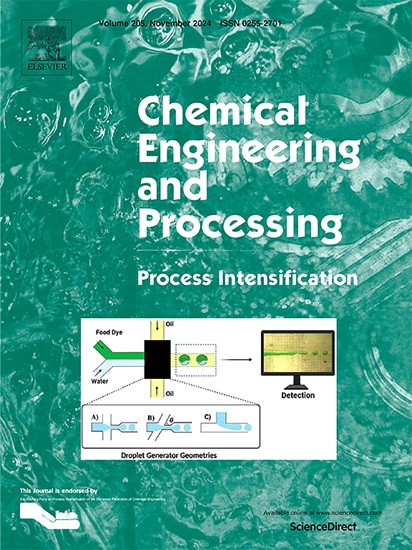循环和分散的炼油厂实现可持续的能源转型
IF 3.9
3区 工程技术
Q3 ENERGY & FUELS
Chemical Engineering and Processing - Process Intensification
Pub Date : 2025-07-29
DOI:10.1016/j.cep.2025.110479
引用次数: 0
摘要
传统精炼约占全球二氧化碳排放量的6%,消耗近20%的工业能源,这使得向分散和可持续的生物精炼网络过渡的紧迫性显而易见。过程强化,包括反应蒸馏和热耦合塔等技术,可节省高达50%的能源,降低30%至45%的运营成本,确保环境和经济可行性。与此同时,数字化支持预测性维护和流程优化,可将炼油利润率提高10%,并将排放量减少5%至15%。分散式配置有利于集成可再生能源系统和Power-to-X技术的使用,这些技术利用太阳能、风能和电解能源,可将碳排放量减少10%至50%,运营成本降低42%。这些战略与循环经济的原则相一致,并提供灵活和适合当地的能源解决方案。然而,实现工业深度脱碳需要强有力的政策框架、对基础设施的战略投资以及跨部门的协调行动。本综述描述了分散式生物精炼厂的技术、经济和环境影响,强调了其在将炼油部门重新配置为一个有弹性和低排放的电网方面的变革潜力,能够支持全球向可持续能源系统过渡。本文章由计算机程序翻译,如有差异,请以英文原文为准。

Circular and decentralized refineries for a sustainable energy transition
Conventional refining accounts for approximately 6 % of global CO₂ emissions and consumes almost 20 % of industrial energy, making the urgency of the transition to decentralized and sustainable biorefinery networks evident. Process intensification, which includes technologies such as reactive distillation and thermally coupled columns, achieves energy savings of up to 50 % and operating cost reductions of 30 % to 45 %, ensuring environmental and economic viability. Meanwhile, digitalization supports predictive maintenance and process optimization, improving refining margins by up to 10 % and reducing emissions by 5 % to 15 %. Decentralized configurations facilitate the use of Integrated Renewable Energy Systems and Power-to-X technologies, which leverage solar, wind, and electrolytic energy to reduce carbon emissions by 10 % to 50 % and operating costs by up to 42 %. These strategies are aligned with the principles of the circular economy and provide flexible and locally adapted energy solutions. However, achieving deep industrial decarbonization requires strong policy frameworks, strategic investments in infrastructure, and coordinated actions across sectors. This review describes the technological, economic and environmental implications of the decentralized biorefinery, emphasizing its transformative potential in reconfiguring the refining sector into a resilient and low-emission grid capable of supporting the global transition towards sustainable energy systems.
求助全文
通过发布文献求助,成功后即可免费获取论文全文。
去求助
来源期刊
CiteScore
7.80
自引率
9.30%
发文量
408
审稿时长
49 days
期刊介绍:
Chemical Engineering and Processing: Process Intensification is intended for practicing researchers in industry and academia, working in the field of Process Engineering and related to the subject of Process Intensification.Articles published in the Journal demonstrate how novel discoveries, developments and theories in the field of Process Engineering and in particular Process Intensification may be used for analysis and design of innovative equipment and processing methods with substantially improved sustainability, efficiency and environmental performance.

 求助内容:
求助内容: 应助结果提醒方式:
应助结果提醒方式:


